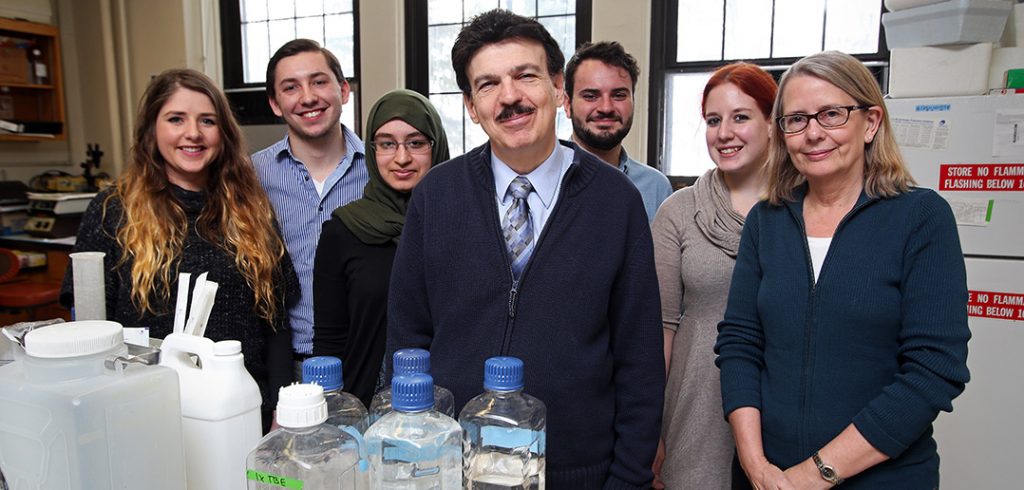Berish Rubin, Ph.D., professor of biological sciences, and research associate Sylvia Anderson, Ph.D., have been named recipients of the 2017 Janet Davison Rowley Patient Impact Research Award, presented by Cures Within Reach, a nonprofit focused on repurposing research as a fast track to saving patient lives.
The faculty members will be honored on June 27 for their work on behalf of patients with Familial dysautonomia (FD), a rare genetic disorder that impacts the development and function of a person’s autonomic nervous system.
Rubin and Anderson, who jointly direct Fordham’s Laboratory for Familial Dysautonomia, will accept their award at the Fifth Annual Global Health Repurposing Awards (GHRA), in Chicago.
Rubin and Anderson first identified the cause of the disease, which affects one in 30 individuals of Ashkenazi Jewish descent, in 2001, and have spent the last 16 years identifying and testing five natural, over-the-counter treatments for patients.
FD disrupts the autonomic nervous system, causing blood pressure spikes, strokes, vomiting, insensitivity to pain, and dry eyes that can lead to corneal abrasions.
The success of these “nutraceutical” therapies, which have allowed children to live normal lives, has spurred them to apply the same approach to treating osteoporosis and progeria, another rare but devastating progressive genetic disorder that causes children to age rapidly.
“Progeria is an interesting disorder, because people think it is a model for aging, so if you can slow down that process, maybe you can slow down the process in people as well,” he said.
Rubin, who focuses on natural compounds so as to make treatments affordable and accessible, said he’s grateful for the acknowledgement of Cures Within Reach. The researcher said he takes his greatest pleasure from receiving updates from the families who benefit from their treatments. One of the first patients to participate in the regimen, a 7-year-old boy who Rubin said was “on death’s door” in 2003, graduated from college this year.
“Scientists work their whole lives with the hope of impacting the world, whether it’s in the physical sciences, the biological sciences or the life sciences. But it usually takes a very long time for our work to be translated from the laboratory to bedside, so to speak,” he said.
“We have seen the transformation of people’s lives, and that is an incredible thing to be able to see.”

